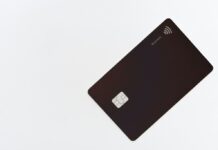
Starting a business means a lot of firsts. First sale. First customer. First time figuring out how to deal with taxes. But one of the most important first steps is opening a business bank account. It sounds official—and maybe even a little complicated—but it’s actually pretty simple once you know what to expect.
A business bank account isn’t just about storing money. It helps keep everything organized, makes tax time easier, and shows customers or clients that the business is legit. Whether the business is big, small, or just getting started, having the right account is a smart move.
Why a Business Account Matters
When someone runs a business, they need to know exactly where their money’s going. Using a personal bank account for business payments might work for a little while, but it causes problems later. It makes it hard to tell business expenses apart from personal ones. It also makes taxes way more confusing.
A business account keeps everything separate. It shows clearly what was earned and what was spent. If there’s ever an audit or if the business needs to apply for a loan, having clean records helps a lot. And if the business is an LLC, it’s actually required to keep business and personal money separate.
A lot of new business owners are surprised to learn how quick the process is. It’s not much harder than opening a regular checking account. The main thing is having the right documents ready to go.
If you’re not sure where to begin, you can check out this guide on how to open business bank account. It explains the steps clearly and helps you choose the type of account that fits your setup best.
What You’ll Usually Need
To open a business bank account, a few documents are almost always required. These help prove that the business is real and legally allowed to operate. The exact list depends on what kind of business it is, but here are the basics:
- Business name registration: This proves the business has been officially registered. It could be a certificate or business license.
- Employer Identification Number (EIN): This is a number from the IRS that works like a Social Security number for the business. It’s free to get online.
- Business formation documents: If the business is an LLC or corporation, these papers show how it was formed and who owns it.
- Personal ID: A driver’s license or passport is usually needed to show who’s opening the account.
Some banks might ask for extra details, like your business address or what the company does, but nothing too complicated. Once the documents are ready, the account can usually be opened online or at a bank branch.
Choosing the Right Bank
Not every business needs the same kind of bank. Some business owners want to walk into a branch and talk to someone in person. Others would rather do everything on their phone or laptop.
Traditional banks often have more services, but they also tend to charge more fees. Online banks can be cheaper and easier to use, especially for small businesses or solo owners. Some offer tools that track expenses, create reports, or link with apps for invoices and payments.
It’s good to compare a few banks before picking one. Things to check include:
- Monthly fees
- Minimum balance requirements
- Tools for tracking spending
- Customer service access
- Online and mobile banking features
It helps to think about what the business actually needs. A simple checking account might be fine to start with. If the business grows, more features can always be added later.
Opening the Account Online vs. In Person
Some banks let you open a business account fully online. That means uploading your documents, filling out some forms, and verifying your identity—all without leaving home. This is a great option if you already have everything ready.
Other banks may want you to come into a branch. That’s not a bad thing—it just depends on how you want to set things up. Some people feel better asking questions in person, especially when they’re doing it for the first time.
Either way, once the account is open, you’ll get the usual things: a debit card, online access, and maybe even a business checkbook. From that point on, all business income and expenses should run through that account to keep everything clean.
What Comes Next
After opening the account, the next step is using it correctly. That means:
- Depositing all income from the business into the account
- Paying for all business expenses with the account
- Keeping receipts and tracking what each payment is for
- Not using the account for personal purchases
This helps build a clear record of what the business earns and spends. That makes it way easier to make budgets, see if the business is profitable, or file taxes.
Some business owners also set up a second account just for saving. This can be helpful for setting aside money for taxes, big purchases, or emergencies. It’s a simple way to stay ahead and avoid surprises.
A Quick Note About LLCs and Sole Proprietors
If the business is an LLC or corporation, a business bank account is required. That’s because the business is legally separate from the person running it. Using a personal account could cause legal problems and even cancel the liability protection that an LLC provides.
If the business is a sole proprietorship (run by one person without forming a company), the rules are more flexible. But even then, opening a business account is still a good idea. It shows professionalism and keeps the money situation clear.
What to Take Away From This
Opening a business account sounds more complicated than it is. It just takes a little prep and the right documents. Once it’s open, it becomes a key part of running the business the smart way.
It keeps personal and business money separate, helps with taxes, and makes the business look more professional. Whether the business is brand new or has been running for a while, setting up the right account is one of the best things to do early on.
And the good news? It’s actually pretty easy.







